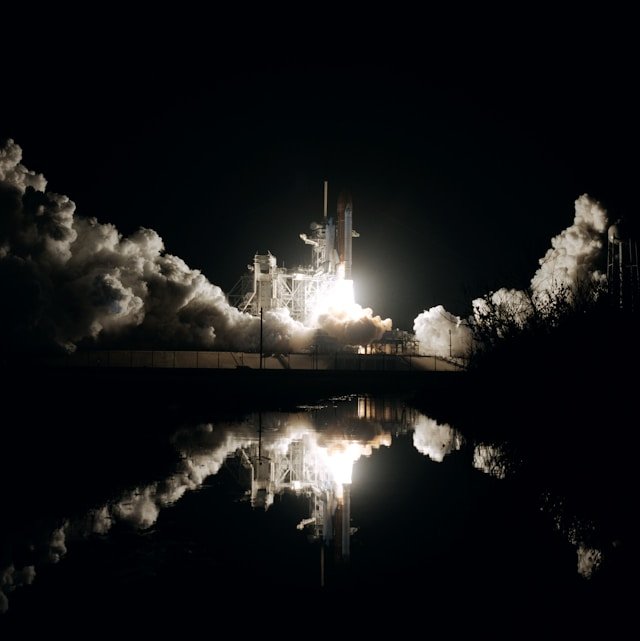Recently, Elon Musk came out with his plan for a Mars mission, with the first Martian being his Tesla robot. Well, for that, they will need power, which is why, perhaps, Russia proposed building a small nuclear power plant to support the mission. And if that sounds like a plot twist, trust me, you’re not alone.
For years, Musk has been vocal about colonizing Mars, turning the Red Planet into humanity’s second home. SpaceX has made incredible progress in rocket technology, but one major challenge remains—how to generate sustainable energy on Mars. Well, perhaps that’s where Russia, a country with decades of nuclear expertise, steps in with an offer that could change the game. Kirill Dmitriev, one of Vladimir Putin’s top envoys, openly stated that Russia could supply a compact nuclear power plant to power Musk’s ambitious plans for Mars colonization. However, it remains unclear whether this nuclear plant is meant to be deployed on Mars itself or used on Earth to facilitate the mission.
At first glance, this sounds like a strategic and mutually beneficial arrangement. After all, nuclear power is one of the most viable long-term energy sources for space missions. Unlike solar panels, which would struggle with dust storms and weak sunlight on Mars, a nuclear reactor could provide a consistent and powerful energy supply.
And truth to point, Russia’s history with nuclear-powered satellites and space technology goes back decades. The Soviet Union was a pioneer in developing nuclear space power, launching the first nuclear-powered satellite, Kosmos 954, in 1977. The mission ended in controversy when the satellite malfunctioned and crashed in Canada, spreading radioactive debris. Despite this setback, Russia continued its nuclear space projects, launching dozens of BES-5 reactors (also known as Buk reactors) for military satellites during the Cold War. In recent years, Russia has been working on more advanced space nuclear technologies, including nuclear propulsion systems that could drastically cut travel time to Mars. They have also outlined a roadmap for placing a nuclear power unit on the Moon by 2033-2035, with Mars potentially being the next target.
But let’s pause for a second. Russia and the United States haven’t exactly been best friends lately, and that extends into space relations as well. While SpaceX has always operated independently, the idea of Musk working with Russia in this capacity raises some serious geopolitical eyebrows. Would the U.S. government even allow such a collaboration? And if so, what kind of deals would need to be made behind the scenes?
There’s also the Elon Musk factor. The tech billionaire has always had a complicated relationship with governments, playing by his own rules in everything from electric cars to artificial intelligence. So far, Musk hasn’t responded publicly to Russia’s proposal, but we do know he’s been interested in nuclear energy for space travel before. He even found Russia’s planned nuclear plant for the Moon (expected between 2033 and 2035) to be ‘interesting.’ Could that mean he’s open to the idea of Russian collaboration on Mars?
If we strip away politics and just look at the tech, Russia’s offer makes a lot of sense. The country has been pioneering nuclear space technology for decades. They’ve developed nuclear-powered satellites, and their Rosatom agency has been working on advanced space nuclear propulsion systems. In fact, they have a roadmap for putting a nuclear power unit on the Moon, and Mars is naturally the next step.
So, what does this mean for Musk’s Mars dream? If he accepts, it could mean a shortcut to getting a reliable energy source for a Mars colony. If he declines, it raises the question—what other energy solutions does SpaceX have in mind? Will they develop their own nuclear system, or do they have something else up their sleeve?
One thing is certain—whether Musk shakes hands with Russia or not, the idea of using nuclear power for space exploration is no longer science fiction. It’s happening, and it’s only a matter of who gets there first. If this proposal turns into a real partnership, it could mark a historic shift in how space exploration is powered. And if Musk remains silent, well, it’ll only add more fuel to the fire of speculation.
Either way, watching this space (pun intended) just got a whole lot more interesting.
Putin envoy says Russia could supply a small nuclear power plant for Musk’s Mars mission




